|
Replies: 33
| visibility 151
|
All-In [29874]
TigerPulse: 100%
Posts: 8843
Joined: 10/31/10
|
Christology Teaser

3
Mar 16, 2024, 5:35 PM
|
|
I’ll start by saying Christology is a big, big topic. Real big.
Lots of facets and lots of gray and lots of history. I’m a little out of my arena because while I am familiar with some of the historical ends regarding Christology (via Ecumenical Councils and such), the underlying theological premises that led to those interpretations is a whole other bag. A big bag.
In short, I know much more about how the sausage ended up than how it got made. Here’s the first 7 of those 21 sausage making sessions.

But, I had an interesting discussion on the board yesterday about it and said I’d do a little research into the development of some of the various modes of thought in Christology. I got kind of intimidated pretty quick. After all, it took the Bishops of Europe about 300 years to only partially sort it all out and they are still working on it 2000 years later.
And I only put an hour or so into it last night.
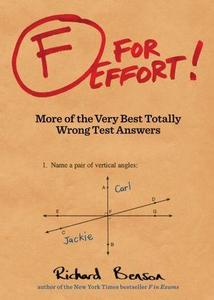
In simplest terms, Christology is the study of the nature of Christ. How human he is vs. how divine he is, and when he became either, or both.
That seems simple enough, but the weeds get pretty deep, and pretty fast. My idea was to collect some scriptural verses from different ends of the spectrum, and let each case sort of present itself.
But what I quickly learned is that it’s not a matter of comparing opposing verses, it’s a matter of how one interprets EVERY verse. That’s a much, much more daunting, if not impossible task. So there’s not really any ‘fact’ that can be found. It’s all interpretation – Oy vey!

The two ends of the spectrum are called Low Christology and High Christology. Low meaning “from below”… via Jesus’s very first followers, and High meaning “from above”, via visions and revelations from his later followers.
So they might also be thought of as Early Christology and Late Christology. And the specific issue that we’ll look at (among many, many others) is “When was Christ actually created?” It was a big deal back then, and apparently still is. I was taught differently than many others, even just a few decades ago.

Low (Early) Christology says that Jesus had a late divinity, and that God selected, or adopted, him to be his son. So Jesus became divine at either his birth or his baptism.
High (Late) Christology says that Jesus existed as a fully divine being from creation, assumed a human form for a very limited time to deliver his message, and then became fully divine again.
That’s the simplified, black and white version of a very grey spectrum of possibilities. Another way of thinking about it is, “Did God become part man, or did a man become part God?
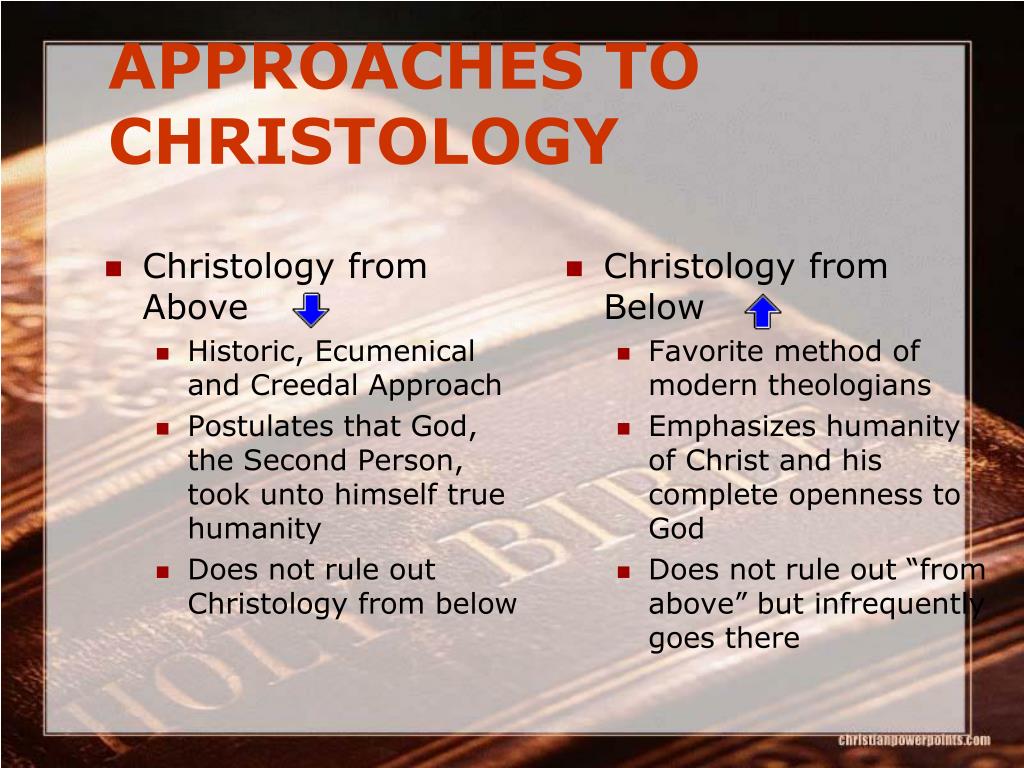
That all comes with the associated idea that the later Gospels interpreted Jesus’s divinity as occurring earlier and earlier.
High Christology, being a later interpretation, came after Low Christology, and so had the theological advantages of both: 1) knowing what came before it, and 2) being the last word on the matter. I forget which Roman orator said “You always want to be the one who gets to speak last on any subject.”

Let’s look at a few examples from each end of the spectrum. For instance, Mark may have been the first gospel written. And, Mark may have seen Jesus as becoming divine as late as his baptism, not since creation. Take Mark 1:11
“And a voice came from heaven: You are my Son, whom I love; with you I am well pleased.”
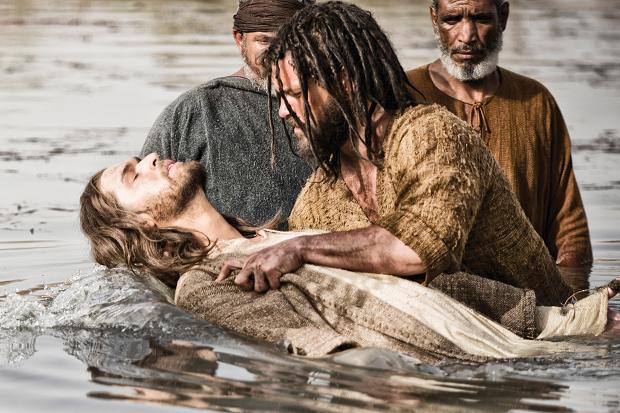
A High Christologist (HC) might say “Ok, Jesus got baptized. He was already divine. So what?”
But a Low Christologist (LC) might say “Why does a divine being even need to be baptized? Jesus’s baptism was actually the very moment that God adopted Jesus as his son and bestowed divinity on him.”
God wouldn’t have to remind Jesus who Jesus was by saying, “you are my son,” if Jesus had already been God’s son since creation. That would be like one day randomly saying to your wife of 30 years: ‘You are my wife.’ Duh - she already knows it. So a Low Christologist is in effect interpreting that verse as:
“You are [now] my [adopted] Son, whom I love; with you I am well pleased.”

That idea may seem odd at first. Until one gets into the weeds and takes a closer look. Keep in mind that in Mark there is no miraculous conception story about Jesus, no birth story, and no Three Wise men who follow the star marking the location of the infant son of God. Nothing about Jesus’s childhood at all.
Mark actually begins with Jesus’s baptism, and tells his entire story from that point on. That’s another clue that whoever wrote Mark may have viewed Jesus’s baptism as the first spiritually significant moment in his life, and so that’s where his story begins - with his transformation into divinity at that point.
And the idea is that if Mark was written first, then the Low Christology idea would have started there, and been the original interpretation of Jesus’s divinity. There were no other gospels at the time, and so no other written interpretations. Eventually, the timing of Jesus’s divinity got pushed back by gospels that were written later, by those who viewed Jesus as being divine not just from baptism, but from birth, and eventually from creation itself.
The James Webb Telescope interprets the moment of creation.
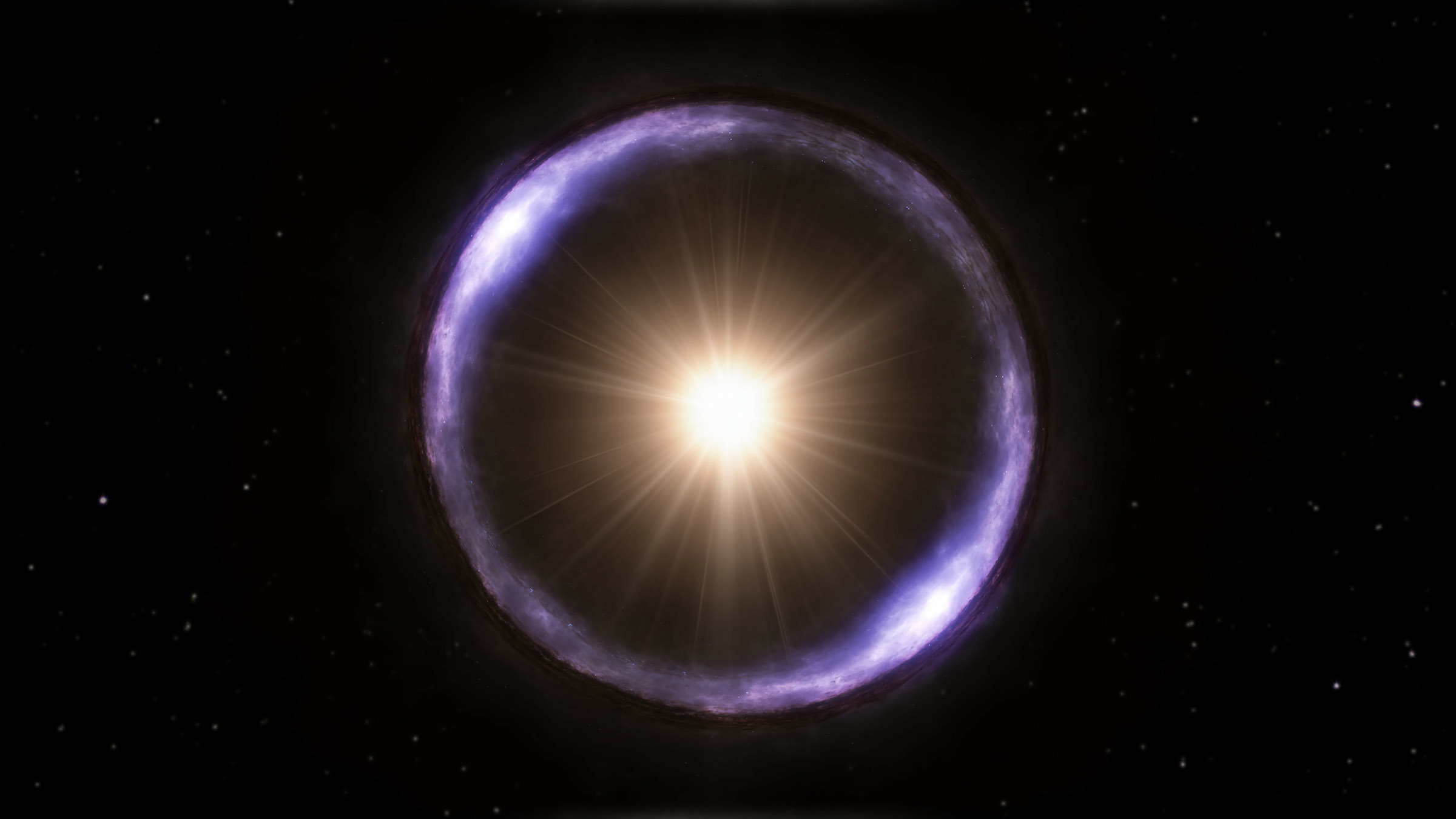
The Gospels of Matthew and Luke, both possibly written after Mark, may have included the first interpretations of Jesus’s divinity as occurring at conception. Let’s look at Matt 1:20 (and the parallel story in Luke 1:35)
“…what is conceived in her is from the Holy Spirit. She will give birth to a son, and you are to give him the name Jesus, because he will save his people from their sins.”
In that case a High Christologist might say, “Ok, God declared a divine child would be born. Jesus had been divine since creation, and simply entered this world through Mary. What’s the issue here?”
And a LC might say, “Right, it says that a divine child would be born, which means there was a time when the divine child was not born, which means that there was a time when the divine child did not exist. So if he didn’t exist at the time of Mary, he couldn’t have existed since creation.”
The very acts of conception and birth imply creation. How can something be conceived, but not created?
And if divine Jesus pre-existed and didn’t need to be born, then why not just miraculously appear on earth? The birth part has to have a value and a reason, or why do it?
And if the argument is that it was just Jesus’s human form that was born, then he wasn’t divine when he was born, he was just human.
So when did his human form merge with his divine form? And how, and where? And now we’re into a whole other branch of Christology regarding the very composition of Christ, not just when he was created.
And down the rabbit hole we go.

So you can see how someone might spend 300 years on this tangle.
And finally, a case from the other end of the spectrum, and the presumably last gospel, John. This pushes Jesus’s divinity all the way back to creation. From John 1:
“In the beginning was the Word, and the Word was with God, and the Word was God. 2 He was with God in the beginning.”
An HC might have said “Checkmate. John says he was with God in the beginning.”
And an LC might have said “Well, where to begin? First, if John is going to start making fathers be created at the same time as their sons, or co-exist through eternity, that’s called ‘brothers.’ Jesus specifically said he was the Son of God, not God’s brother. So he had to come after, by definition.
And furthermore, that Johnny-come-lately John, with his foreign Greek Logos philosophy, has distorted the true nature of our very Jewish Messiah. Every messiah we’ve ever had has started as a human, and Yahweh never mentioned Jesus in 2000 years. So he must be Yahweh’s new son, not his long-hidden brother.”
“It’s our three Gospels against John’s, and John only wrote his after the fact because he’s been hanging out with too many Greeks and all of his followers are Greek. He’s forgotten what it means to be Jewish! John ended up getting the last word in, when he should have never even been made canon in the first place.”
Lol. Sour grapes.

You’ll note though that John’s ‘Word’ philosophy only appears in John, and wasn’t included in any of the of the earlier Gospels.
Even a verse like 8:58, also from John, that says: “…before Abraham was born, I am!” is subject to multiple interpretations.
An HC might say “that seems pretty clear to me. Jesus was with God from the beginning. Case closed.”
While an LC might say “Well, if Jesus existed as a divine being at creation, what divine being was conceived, created, and born through the miraculous conception of Mary? Is there one Jesus, or two?”
And if Jesus as a divine being only passed through Mary on his way to earth, was he actually conceived since he existed beforehand? And if only his human form was conceived, then back to all those arguments from Matthew and Luke about the human vs. divine nature of Jesus – how, when, where, etc.
And again, that’s a verse that’s’ only found in John, and not the other three gospels. So it’s hardly consensus. And back down the rabbit hole we go.

Whew.
So that’s just a brief introduction to just one facet of Christology. And a look at both the High and Low sides. As I said at start, it’s not quite as easy as finding simple facts. Stuff like “Did Jericho exist?” is easy. “We dug it up, so it’s a fact.”
But the nature of God, and Jesus, is all interpretation. Either your own, or someone who lived before you, if you trust their view. Which is why a whole lot of Bishops in Europe, representing a whole bunch of interpretations just like the ones above, got involved somewhere along the way. And somewhere down the line, when we’ve got a lot more time, we’ll come back and take a closer look at other things they debated for hundreds of years, too.
That’s a lot of holy halo-power thinking it all through. Did everyone get on the same page? Well, not quite yet…maybe in a few more millennia.
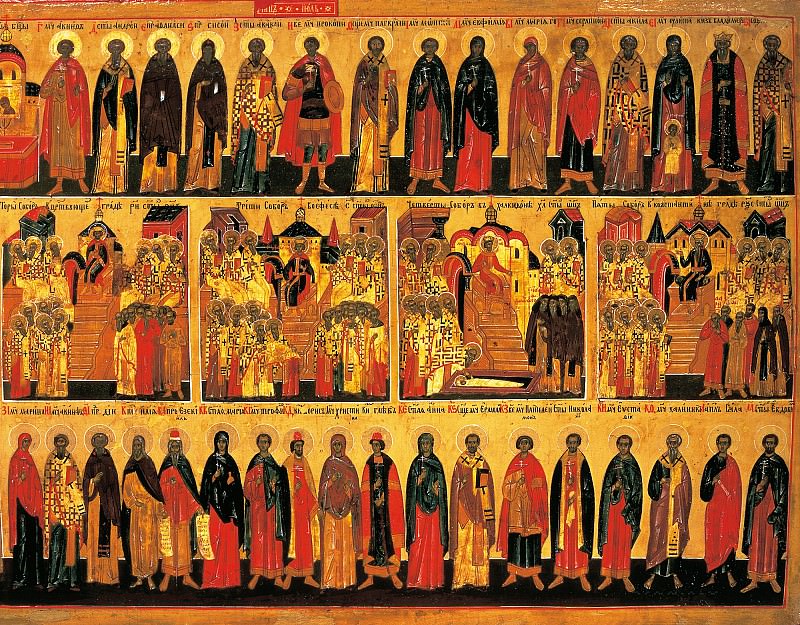
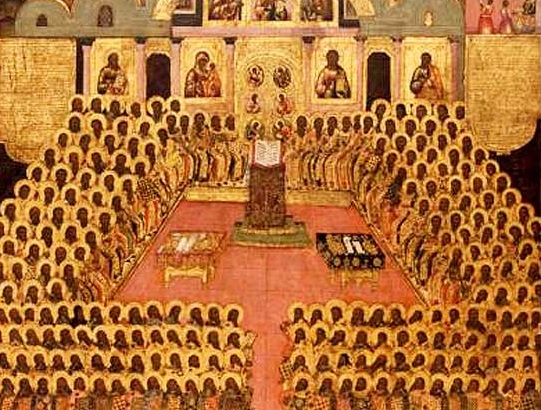

|
|
|
|
 |
Oculus Spirit [93674]
TigerPulse: 100%
Posts: 95423
Joined: 12/25/09
|
IDK.

1
Mar 16, 2024, 8:00 PM
|
|
That which I know is well is listed in Colossians chaper 1 and it's perfectly organized to make it so simple even a caveman can do it.
"13 Who hath delivered us from the power of darkness, and hath translated us into the kingdom of his dear Son:
14 In whom we have redemption through his blood, even the forgiveness of sins:
15 Who is the image of the invisible God, the firstborn of every creature:
16 For by him were all things created, that are in heaven, and that are in earth, visible and invisible, whether they be thrones, or dominions, or principalities, or powers: all things were created by him, and for him:
17 And he is before all things, and by him all things consist."
So John wasn't alone when he said In the beginning the word was with God and the word was God in verse 1 then in verse 14 said, '...and the word became flesh and dwelt among us.'
Either of those statement might be considered an error, two would be either the truth by two witness or a conspiracy to deceive.
And if divine Jesus pre-existed and didn’t need to be born, then why not just miraculously appear on earth? The birth part has to have a value and a reason, or why do it?
To fulfill the prophesies He had to be 'the seed of woman,' virgin birth, Genesis chpt 3, The son of Abraham and David.' There's many more prophesies He fulfilled but those should be enough to qualify as a considerate answer.
So when did his human form merge with his divine form? And how, and where? And now we’re into a whole other branch of Christology regarding the very composition of Christ, not just when he was created.
I think the confusion is 'when,' was He created?' There is no when in eternity, no before, no after. It's all likely to be considered 'At the same time,' for eternity has no clock.
As for when He realized He belonged to God I'd suggest at His visit to the Temple when He was 12. It is my belief that His questions were leading, He was not seeking answers, He was controlling the narrative to put he priest and scribes on notice that He had great command of God's playbook.
I have no way to verify that but we've broached that subject more than once here and I remain consistent though previously I never opened the floodgate of my view of the subject.
These are my concepts. Most of which I got straight from the Bible and if not I examined the sermons, SS lessons and testimonies as weighed against scripture to see if they fit.
|
|
|
|
|
 |
All-In [29874]
TigerPulse: 100%
Posts: 8843
Joined: 10/31/10
|
Re: IDK.

1
Mar 17, 2024, 12:43 AM
|
|
I always like your replies 88; comprehensive and with citations. Easy for me to digest.

Colossians, by Paul, would be firmly in the High camp. All of these interpretations occur in a pretty tight time window, maybe in the first 50-75 years after Jesus's death, and across space as well as time. That is, Paul could be teaching High philosophy in Greece at the very same time James was teaching a Low philosophy over in Jerusalem. Two men, two interpretations...when has that ever happened?
And as I mentioned in the OP, it gets downright maddening the more one looks at it. Take this verse by Paul that you quoted:
15 The Son is the image of the invisible God, the firstborn over all creation. (NIV)
That's High Paul, no doubt. But Mark might had said "if Jesus was firstborn, why isn't he mentioned in Genesis? Born means born, right? Not existing eternally. And if he's firstborn, seems like he'd be mentioned before Adam."
So far as I know, Mark never met Paul...but oh to be a fly on the wall in a conversation between them. That's why I said these two modes of interpretation cut right through verse-after-verse in the Bible. Every one depends on whether you have on High, or Low glasses when you look at it. Not for the faint of heart.
>There's many more prophesies He fulfilled but those should be enough to qualify as a considerate answer.
Indeed it is. This is actually the topic of my very next post, the 2nd in the Revelation series. So it's coming right up!
>There is no when in eternity, no before, no after.
I'm with you on that, from the High side. I couldn't exactly figure out how to say that in my text since I was addressing both philosophies at the same time. It's awkward wording on my part.
I suppose I could have distinguished the difference by saying "not just when he was created...or not" but that's even more confusing. Not much better than saying it as "not just when he was created...or already existed." Yuck. No easy way to get both those concepts across in a simple sentence.
>As for when He realized...
That's a great point and another gradation, and discussion. WHEN did he know? You can see how complicated the field of Christology gets when one starts to think about all they myriad facets and related questions. Got a few hundred years to spare?  ">"> ">">
>I remain consistent
I wouldn't have it any other way. We need your perspective. We've already got one too many confused, floundering agnostics on this board.

In fact, I'm just about to go sit out the patio, stare up at the night sky, and hopelessly ponder my place in the universe.

|
|
|
|
|
 |
Oculus Spirit [93674]
TigerPulse: 100%
Posts: 95423
Joined: 12/25/09
|
Re: IDK.

1
Mar 17, 2024, 4:31 AM
|
|
Superficially thinking might I suggest that while Christ was a living Spirit when He created this world technically He had not been born until Mary birthed Him.
I understand that sounds a lot like double talk but Jesus' words to Nicodemus in John 3 come to mind which expose the concept and framework of a spiritual birth by comparing it to a physical birth.
"3 Jesus answered and said unto him, Verily, verily, I say unto thee, Except a man be born again, he cannot see the kingdom of God."
It follows that one not born of the Spirit is spiritually dead. It's addressed many times.
Romans 4:
"17 (As it is written, I have made thee a father of many nations,) before him whom he believed, even God, who quickeneth the dead, and calleth those things which be not as though they were."
Eph 2:
"1 And you hath he quickened, who were dead in trespasses and sins;..."
And moreso the concept is expressed in Matt 8:
"But Jesus said unto him, Follow me; and let the dead bury their dead."
In Matt 8 Jesus was telling his prospective Apostles to let the spiritually dead bury the physical dead.
|
|
|
|
|
 |
All-In [29874]
TigerPulse: 100%
Posts: 8843
Joined: 10/31/10
|
Re: IDK.
Mar 17, 2024, 12:09 PM
|
|
>Superficially thinking might I suggest that while Christ was a living Spirit when He created this world technically He had not been born until Mary birthed Him.
You're right on the case 88. And that's the other huge half of Christology I didn't touch on because it would have been another 3000 words.
The nature of Christ might be a bigger topic than the origin (if there was one) of Christ. Was Christ 1/2 man and half divine? Was he 1/3 man and 2/3 divine? Was he 2/3 man and 1/3 divine? Was he man on the outside and divine on the inside? Was he man and divine blended together like mixing peanut butter and jelly with a spoon?
Every one of those options was thought about, discussed, and believed, by some group, in history. And many more. That's why I said at start, "Christology is big...real big." As many opinions as people, almost. As I have time I'll post about some of them.
|
|
|
|
|
 |
Oculus Spirit [93674]
TigerPulse: 100%
Posts: 95423
Joined: 12/25/09
|
Jesus is 100% both God and man.

2
Mar 17, 2024, 3:56 PM
|
|
We've discussed the variations between the Gospels several times here. Each of these 4 men had a different focus. While each supports a common story of Jesus' ministry each had a lean with a major focus on one principle.
Matt was the historian and reminds us Jesus is promised King of the Daviadic Covenant.
Mark reminds is the He is a servant of both The Father and mankind.
Luke show us the humanity of Christ.
John show us He is God.
That wasn't an accident.
|
|
|
|
|
 |
All-In [29874]
TigerPulse: 100%
Posts: 8843
Joined: 10/31/10
|
Re: Jesus is 100% both God and man.

1
Mar 17, 2024, 4:23 PM
|
|
I agree with you that each gospel seems to have those separate focuses when viewed in the totality of all of them. That is, sometime well after Jesus's death.
But I'm also reading them through right now in a slightly different way. Starting with Mark, I'm going to try and read them as objectively as possible, based purely on the perspectives at the time when they were supposedly written, and see where that leads me. That is, not color them with possible later concepts and ideas. If Mark doesn't think Jesus's birth is important enough to mention in his work, then I won't consider anything about Jesus's birth in my reading of Mark. And so forth.
What I'm trying to get at is, if I were a Jew in 45 AD, say, and was I considering converting to this brand-new religion called Christianity, and the only text I had available was Mark, because nothing else had been written, what would I make of it?
What does Mark talk about? How does Mark present Jesus? What are the most important things Mark says about Jesus, etc. How does Mark present the case for this new religion, in the limited words he has, to someone who has never heard of it before?
I think that will be a fascinating look at early Christianity.
|
|
|
|
|
 |
All-In [29874]
TigerPulse: 100%
Posts: 8843
Joined: 10/31/10
|
Re: Jesus is 100% both God and man.
Mar 17, 2024, 4:36 PM
|
|
None of that necessarily has any bearing on who or what Jesus actually may be or may have been. That's a matter of faith, I think.
But it might show what the people who met him thought of him, and when. Sort of a corollary to "What did he know and when did he know it?"
I'm more curious as to "What did the people who followed Jesus think, and when did they think it?"
|
|
|
|
|
 |
Oculus Spirit [93674]
TigerPulse: 100%
Posts: 95423
Joined: 12/25/09
|
I suppose if one lived in seclusion on a mountain he might encounter...

2
Mar 17, 2024, 7:13 PM
[ in reply to Re: Jesus is 100% both God and man. ] |
|
one of the Gospel stories without ever hearing of a virgin birth, the miracles, the death, resurrection and ascension of Jesus the Nazarene. From what I hear the story spread pretty wide and quick.
I think that might even be an historical record.
|
|
|
|
|
 |
All-In [29874]
TigerPulse: 100%
Posts: 8843
Joined: 10/31/10
|
Re: I suppose if one lived in seclusion on a mountain he might encounter...

1
Mar 17, 2024, 7:22 PM
|
|

|
|
|
|
|
 |
Oculus Spirit [93674]
TigerPulse: 100%
Posts: 95423
Joined: 12/25/09
|
I'm so sorry, I addressed you like I would a teenager.

1
Mar 17, 2024, 11:25 PM
|
|
There were many ways I could have expressed that thought without...well, I confess but I'm not going to push the point by describing my horrible attitude. I apologize.
|
|
|
|
|
 |
All-In [29874]
TigerPulse: 100%
Posts: 8843
Joined: 10/31/10
|
Re: I'm so sorry, I addressed you like I would a teenager.

1
Mar 17, 2024, 11:47 PM
|
|
No need for apologies. You got a laugh out me. All good!
|
|
|
|
|
 |
Legend [17918]
TigerPulse: 100%
Posts: 8942
Joined: 12/24/96
|
Re: Jesus is 100% both God and man.

2
Mar 17, 2024, 9:26 PM
[ in reply to Re: Jesus is 100% both God and man. ] |
|
>What I'm trying to get at is, if I were a Jew in 45 AD, say, and was I considering converting to this brand-new religion called Christianity, and the only text I had available was Mark, because nothing else had been written, what would I make of it?
Ans: You would not have just the Mark's Gospel. You would still have the testimony/witness from the multitudes who were there, had been blessed, had been healed, etc. You would also still have the debate among the Pharisees and Sadducees - probably some divisions because of the teachings they held which Jesus refuted. There would be Romans with testimony as well.
|
|
|
|
|
 |
Oculus Spirit [93674]
TigerPulse: 100%
Posts: 95423
Joined: 12/25/09
|
One addition.

1
Mar 17, 2024, 11:31 PM
|
|
God's Holy Spirit has the most convincing and convicting testimony. I had dozens of people I love and respect testify to me but God only had do give his precious testimony once.
Psa 19:7
“The law of the LORD is perfect, converting the soul: the testimony of the LORD is sure, making wise the simple.”
The law of the LORD is the first arrow in the target and it's always dead center the bullseye. The testimony of the LORD is the second and it splits the first.
There are others. Read Psa 19.
|
|
|
|
|
 |
All-In [29874]
TigerPulse: 100%
Posts: 8843
Joined: 10/31/10
|
Re: Jesus is 100% both God and man.

1
Mar 18, 2024, 12:50 AM
[ in reply to Re: Jesus is 100% both God and man. ] |
|
Another excellent point, Hunt. And very true.
I suppose the question then becomes, given the wide range of oral tradition and eyewitness testimony available at the time, why Mark choses to only speak of the things he does, or doesn't. Jesus's missing teens and 20's come to mind. The same with Matthew, or Luke, or John, and what they include or exclude as well.
As I was reading Mark earlier today, it struck me that Jesus maybe only even started his ministry after meeting John the Baptist. JtB is another very, very interesting figure. Consider the colossal impact of this simple statement from Mark 1:
4 "And so John the Baptist appeared in the wilderness, preaching a 'baptism of repentance' for the forgiveness of sins."
That is nothing less than a theological earthquake. If taken a face-value, that means JtB is saying you don't need priests to have sins forgiven, nor to you even need sacrifices anymore. All you need is repentance, and water. To tell the Jewish priest class that they, and sacrifice, are no longer needed, had to make JtB quite a few enemies. It's verses like that that also make me wonder why Jesus felt he needed to sacrifice himself.
Jesus obviously thought enough of John to let John baptize him, rather than the other way around, but if John felt sacrifice was no longer necessary, what did Jesus think of that? Did Jesus think that he was just fulfilling prophecy, but that his death wasn't really necessary to remove sin? That water and repentance would do it? Did he think that JtB was correct, or mistaken?
I note too that later, Jesus heals a man of leprosy, but tells him to go and make a sacrifice to the priests anyway. Mark 1:44
“See that you don’t tell this to anyone. But go, show yourself to the priest and offer the sacrifices that Moses commanded for your cleansing, as a testimony to them.”
Was that just for show? Maybe to keep the priests off Jesus's back if word got out as to what he was doing? Idk. Leviticus has a whole litany of sacrifices for various healings, so Jesus wasn't alone in his healing.
But healing, and driving demons out, was priest stuff, to be paid for by sacrifices and offerings...maybe wheat, or a dove, but at some cost for the healing service. So for Jesus to 1) be doing a priest's duty, and 2) be doing it for free, had to rankle some folks.
But that's way off on a tangent. Let me get back on topic. Because of their similarity, I've always felt that either Matthew is an expanded version of Mark, or Mark is a trimmed down version of Matthew.
Maybe they were writing to different communities. Maybe the people Mark was writing to were already aware, orally, of some of the things Matthew includes. Or, maybe Mark was written as the "basic essentials" for folks who didn't know anything and were just being introduced to Jesus and his life. Idk.
Luke feels different enough to be truly stand-alone document and not derivative like Mark-Matthew or Matthew-Mark, who share so much in such a similar way.
And John feels like a very advanced, very Greek, take on Jesus's life. As if viewing Jesus's life through the lens of a Greek philosopher rather than through a rural Galilee fisherman, like Mark or Matthew's, eyes.
All 4 gospels are very interesting reads as much for how they differ as for how they are the same.
|
|
|
|
|
 |
All-In [29874]
TigerPulse: 100%
Posts: 8843
Joined: 10/31/10
|
Re: Jesus is 100% both God and man.
Mar 18, 2024, 1:28 AM
|
|
It always takes me about 1000 words to distill a thought
>Did Jesus think that he was just fulfilling prophecy, but that his death wasn't really necessary to remove sin?
What I'm getting at is, if John the Baptist was right, and repentance and baptism was enough to remove sin all along, why did Jesus have to die at all?
Jesus may have been responding to prophecy by saying "well, it has to be this way, my death is pre-ordained." But if JTB was already saving people before Jesus's D&R, then what was the point of the D&R other than fulfilling prophecy?
Jesus could have just skipped the prophecy, and John (or someone else) could have continued right on saving people, whether Jesus died or not.
That just seems really weird to me. I wish we knew more about JtB and what he was actually doing, and what it all actually meant. He seems to be a huge, gaping hole in the history here.
|
|
|
|
|
 |
Oculus Spirit [93674]
TigerPulse: 100%
Posts: 95423
Joined: 12/25/09
|
"Behold the Lamb of God!"

2
Mar 18, 2024, 5:14 AM
|
|
You have to read the entire book to enjoy the story.
|
|
|
|
|
 |
All-In [29874]
TigerPulse: 100%
Posts: 8843
Joined: 10/31/10
|
Re: "Behold the Lamb of God!"
Mar 18, 2024, 9:58 AM
|
|
Hahaha. Oh, I am. I just read it closer, and closer, and closer each time I do.
And, hopefully with a deeper background knowledge each time through.
|
|
|
|
|
 |
Oculus Spirit [93674]
TigerPulse: 100%
Posts: 95423
Joined: 12/25/09
|
Search for phrases which seem to mean more than the words they contain.

1
Mar 19, 2024, 3:31 AM
|
|
For me it's like panning for gold.
|
|
|
|
|
 |
Oculus Spirit [93674]
TigerPulse: 100%
Posts: 95423
Joined: 12/25/09
|
Re: Jesus is 100% both God and man.

2
Mar 18, 2024, 5:13 AM
[ in reply to Re: Jesus is 100% both God and man. ] |
|
Woah, John the Baptist knew exactly who Jesus is. I've said many times the Hebrews knew all along there was a coming Messiah who would give Himself for their sacrifice. The bulls and goats were specifically sacrificed as a constant reminder that only the sinless (innocent) and not guilty of sin could redeem them.
"Not worthy to unlatch His shoelaces,' comes to mind.
A Hebrew man at age 20 could work in or on the temple but priesthood was bestowed was not bestowed upon them until the age of 30. It's in Chronicles. I just came across that in the last few days and believe that is the specific reason Jesus delayed His ministry.
John had foretold of the coming Kingdom of God and knew exactly who Jesus was. John knew his role and Jesus' role too. 'Behold, the lamb of God.'
Still, Jesus had to live under the Law of Moses to qualify as innocent. Christ was the foundation of the end of Jewish Law and tradition. Not that He ended it without living under the law but that he fulfilled it.
Covenant equals contract. Paint the house, get paid for the job and the contract ends. We are now freed from the law of sin and death and got a new contract with God. He offers salvation if we believe and we live in eternity with Him as reward for our faith.
|
|
|
|
|
 |
All-In [29874]
TigerPulse: 100%
Posts: 8843
Joined: 10/31/10
|
Re: Jesus is 100% both God and man.
Mar 18, 2024, 10:16 AM
|
|
I'd say John suspected Jesus was Messiah, but didn't know for sure.
Matt 11:3 "Are you the one who is to come, or should we expect someone else?”
I won't disagree with anything you've said regarding Jesus, but do you think John's baptisms actually removed sins? No way to know of course, but a curious question. And if so, was it John himself, or the process of baptism, that removed the sin? That is, could anyone do what John did, after he was beheaded?
|
|
|
|
|
 |
Oculus Spirit [93674]
TigerPulse: 100%
Posts: 95423
Joined: 12/25/09
|
You're right. In haste I misspoke.

1
Mar 19, 2024, 3:20 AM
|
|
John knew he was laying the ground work for the Messiah, Christ but he did not know specifically who that was until reminded of the miracles Jesus performed. John knew his role and knew the role of the Messiah.
A conquering messiah would not have been considered a lamb. Lambs were the sacrifices for the original passover. Everyone in the region knew what a lamb represented to the Hebrews.
NO, baptism was a confession of sin and a profession of faith.
|
|
|
|
|
 |
Legend [17918]
TigerPulse: 100%
Posts: 8942
Joined: 12/24/96
|
Re: Jesus is 100% both God and man.

2
Mar 18, 2024, 8:30 AM
[ in reply to Re: Jesus is 100% both God and man. ] |
|
>All you need is repentance, and water. To tell the Jewish priest class that they, and sacrifice, are no longer needed, had to make JtB quite a few enemies.
John stated, "The axe is already laid to the root." The tree was not yet cut down, however. Once that sacrifice was complete (Jesus), repentance is required... water is not. See the thief on the cross. However, to fulfill all righteousness, and to walk in the same manner as Christ, baptism is a step one [should] take in obedience to God.
Sacrifices made by those healed, they were to do so to make a [testimony] to them... the Pharisees. A testimony that God had healed and He did so apart from any action on their part. It was a testimony to the work through Jesus!
John 10:36-38; "...do you say of Him whom the Father sanctified and sent into the world, ‘You are blaspheming,’ because I said, ‘I am the Son of God’? If I do not do the works of My Father, do not believe Me; but if I do, though you do not believe Me, believe the works, that you may know and believe that the Father is in Me, and I in Him.”
The sacrifice was a sacrifice of thanks and gratitude for God's goodness to them, as well. Today, we make a sacrifice of ourselves...hopefully.
Romans 12:1-2; I beseech you therefore, brethren, by the mercies of God, that you present your bodies a living sacrifice, holy, acceptable to God, which is your reasonable service. And do not be conformed to this world, but be transformed by the renewing of your mind, that you may prove what is that good and acceptable and perfect will of God.
To be a [Living Sacrifice] is where people have a problem...I say this because when it gets too hot in the oven, it is easy to roll over and step right off of the altar... and [walk] away.
|
|
|
|
|
 |
All-In [29874]
TigerPulse: 100%
Posts: 8843
Joined: 10/31/10
|
Re: Jesus is 100% both God and man.
Mar 18, 2024, 10:21 AM
|
|
>The tree was not yet cut down, however.
>baptism is a step one [should] take in obedience to God.
That makes it sound like you think that John's baptisms actually didn't remove sin? No way to know for certain, of course. It's just an opinion based on the limited info we have. I asked 88 the same thing. I'm curious as to what you guys think about that.
|
|
|
|
|
 |
Legend [17918]
TigerPulse: 100%
Posts: 8942
Joined: 12/24/96
|
Re: Jesus is 100% both God and man.

2
Mar 18, 2024, 12:41 PM
|
|
A lot to digest and explain with your question - God has always sought the heart of man... John did preach repentance in a manner that was new. For quick reference I am providing a copy/paste from one of the commentaries I refer to:
Luke 3:3
Luke noted that the word of God came to John … in the desert. The Old Testament is filled with similar phrases as God called specific prophets to perform tasks. Luke had previously noted that John remained in the desert until his public appearance (1:80).
3:3–6. John’s message was a baptism of repentance for the forgiveness of sins. John’s baptism was associated with repentance, that is, it outwardly pictured an inner change of heart. The word “for” (eis) refers back to the whole “baptism of repentance.” The baptism did not save anyone, as is clear from what follows (vv. 7–14). Repentance was “unto” (lit. rendering of eis; cf. comments on Acts 2:38) or resulted in sins forgiven. Since John’s function was to be Christ’s forerunner, so also his baptism prefigured a different baptism (Luke 3:16). Luke noted that John’s baptizing work was in the country around (perichōron) the Jordan. Because John was visibly taking on himself the role of Elijah, it is possible that he picked this area on the lower Jordan because that was where Elijah spent his last days (cf. 2 Kings 2:1–13). Luke quoted from Isaiah 40:3–5 concerning John’s ministry. Isaiah was writing of God’s smoothing the way for the return of the exiles from Babylon to Judah. But all three Synoptic Gospel writers applied Isaiah’s words to John the Baptist.
Isaiah wrote, “A voice of one calling: ‘In the desert, prepare the way for the Lord.’ ” But Matthew, Mark, and Luke each wrote, A voice of one calling in the desert—the words “in the desert” going with the “voice” rather than with the preparing of the way. Why? Because they quoted from the Septuagint. Of course both are true—the voice (of John the Baptist) was in the desert, and the desert was to be smoothed.
When a king traveled the desert, workmen preceded him to clear debris and smooth out the roads to make his trip easier. In Luke the leveling of the land was a figurative expression denoting that the way of the Messiah would be made smooth because through John a large number of people were ready to receive Jesus’ message (cf. Luke 1:17).
Typical of Luke’s emphasis on the universal availability of the gospel are his words in 3:6, And all mankind will see God’s salvation.
Martin, J. A. (1985). Luke. In J. F. Walvoord & R. B. Zuck (Eds.), The Bible Knowledge Commentary: An Exposition of the Scriptures (Vol. 2, pp. 210–211). Victor Books.
EDITED to remove some copy/paste... too much/more than intended.
Message was edited by: HuntClub®
|
|
|
|
|
 |
All-In [29874]
TigerPulse: 100%
Posts: 8843
Joined: 10/31/10
|
Re: Jesus is 100% both God and man.

1
Mar 18, 2024, 2:02 PM
|
|
Thanks for that!
>EDITED to remove some copy/paste... too much/more than intended.
Lol. I'm ALWAYS chopping down my posts. As long as mine end up anyway, they still start out about twice as long before I post them, every time.
|
|
|
|
|
 |
Oculus Spirit [93674]
TigerPulse: 100%
Posts: 95423
Joined: 12/25/09
|
You two are intellects.

1
Mar 19, 2024, 3:26 AM
|
|
I have to cut and paste sections of my comments for organization. My mind jumps around a subject and is easily distracted. Us dumb guys call it rambling.
|
|
|
|
|
 |
Oculus Spirit [93674]
TigerPulse: 100%
Posts: 95423
Joined: 12/25/09
|
|
|
|
|
 |
Legend [17918]
TigerPulse: 100%
Posts: 8942
Joined: 12/24/96
|
Re: Christology Teaser

2
Mar 17, 2024, 9:01 AM
|
|
Well, a quick response from one who believes Jesus always was.
1. Beginning with the baptism of Jesus. Many people seem to miss one of the most important statements made by Christ before He was baptized: "Permit it to be so to fulfill all righteousness." Jesus made this statement when John stated that he should not be baptizing Jesus, but rather, should himself be baptized by Jesus.
Jesus had to fulfill all righteousness as established in Leviticus - see Leviticus, chapter 16. The High Priest would bathe and change clothes before entering into the presence of God... dressing down. Then, he would also bath and change again before standing in the presence of the people... dressing with the splendor of jewels and fine linen. All of this dealing with sacrifice. Please note, also, that Jesus entered the wilderness after His baptism... the same as the scapegoat was turned loose in the wilderness in Leviticus. The scapegoat, of course, met its fate there, all alone and with no shepherd to watch over and protect it.
2. Jesus as high priest was settled also by the priestly laws given by Moses. Leviticus 10:6, 21:10. When the High Priest stood before Jesus and tore his clothing, he became disqualified as High Priest. Jesus, however, was fulfilling all righteousness. The veil was soon after also torn, removing the inner sanctuary that God held as His own place to meet with the high priest on the Day of Atonement... the end of the Temple's purpose.
And then there is Jesus, taken outside the city walls, into the wilderness of the heathen. Taken outside the city of God. Sacrificed as the scapegoat for the sins of the people - all people.
3. Jesus before the creation. In the beginning God said, "Let there be light..." Many people are confused over what is revealed in that moment. Most will think this is the moment that the sun appeared out of nowhere. It was a Son, but not the sun, which was created later - on the fourth day. So, again, what light was [revealed] in the beginning?
The Preincarnate Work of Christ
He was, in the beginning, the Word -
John 1: 1 In the beginning was the Word, and the Word was with God, and the Word was God. 2 He was in the beginning with God. ("Let there be light")
He, the Word, joined humanity in the walk of life
John 1:14 And the Word became flesh and dwelt among us, and we beheld His glory, the glory as of the only begotten of the Father, full of grace and truth
He was, in the beginning, the Word and the Light of the World
John 1:3-5 All things were made through Him, and without Him nothing was made that was made. In Him was life, and the life was the light of men. And the light shines in the darkness, and the darkness did not comprehend it.
He, the Word, joined humanity in the walk of life
John 1:14 And the Word became flesh and dwelt among us, and we beheld His glory, the glory as of the only begotten of the Father, full of grace and truth
John 1:10-11 He was in the world, and the world was made through Him, and the world did not know Him. He came to His own, and His own did not receive Him.
He, The Lord over all of Creation, will once again be the light of men in Heaven -
Revelation 21:23-24 The city had no need of the sun or of the moon to shine in it, for the glory of God illuminated it. The Lamb is its light. 24 And the nations of those who are saved shall walk in its light...
He (Jesus) was, and is, and always shall be.
|
|
|
|
|
 |
All-In [29874]
TigerPulse: 100%
Posts: 8843
Joined: 10/31/10
|
Re: Christology Teaser

2
Mar 17, 2024, 1:06 PM
|
|
Great comments, Hunt. This one I particularly like:
"Most will think this is the moment that the sun appeared out of nowhere. It was a Son, but not the sun, which was created later - on the fourth day."
That's a great take. I've never thought of it that way. Which is exactly why I like this board...to get new ways of thinking of things.
>Jesus had to fulfill all righteousness as established in Leviticus
Yes, Jesus definitely knew the prophecies and made a conscious effort to see them through. I mentioned the other day that while Jesus could have walked into Jerusalem, he stopped short and summoned a colt. So he was making a statement with that action. Prophecy is another huge topic I'd like to do some posts on when I have a lot more time.
ClemsonTiger1988®
Slightly off topic, but speaking of High and Low readings and prophecy together, I've had some good discussions with 88 on the meaning of "fulfill" in the past, too. Specifically, if it means "to end." Generally that's how it's interpreted, but I'm not sure that's always the case.
For instance, if one "fulfills their marital duties," that doesn't mean they are only going to 'fulfill' only them once, or that the duty will end after the first time, you know? In fact, they're probably going to fulfill those marital duties over and over and over again, particularly if they are younger  "> So what did Jesus mean by fulfill? "> So what did Jesus mean by fulfill?
He certainly knew he was going to die, and he seems to have thought that the End of the World was near, and he knew that sacrifice was fulfilling the Law in a cyclical, repetative sense. And he also seemed to think that his sacrifice was for many.
Matt 26:28 "This is my blood of the covenant, which is poured out for many for the forgiveness of sins"
But when a sheep was sacrificed, it was for many, too.
So did Jesus did he think his sacrifice was a permanent end to sacrifice? That's what I'm trying to find out.
Since he thought the End was near, did he envision his death the same way Paul and others did? That's been the interpretation of the Christian world since his death, but I'm struggling to find out what Jesus thought himself.
Did he think he was just a messenger of the End, and that he would die and his death would serve as another sacrifice, and then the world would end, and there would be no need for more sacrifice anyway?
Paul and others had to figure out what happened when the world didn't end. But did Jesus see things like Paul saw them? Idk.
>He was, in the beginning, the Word
The 'Word' is another big topic. I don't know if Jesus himself ever referred to himself as 'The Word.'
It's a Greek, not a Hebrew concept, and so it falls more in the camp of how the Gentiles interpreted Jesus's existence more than how the Hebrews did, I think. It's something else that needs a deeper look at.
Anyhow, thanks for the comments. You've prompted some deeper thoughts in my mind, and I always appreciate that.
|
|
|
|
|
 |
Legend [17918]
TigerPulse: 100%
Posts: 8942
Joined: 12/24/96
|
Re: Christology Teaser

2
Mar 17, 2024, 3:30 PM
|
|
Well, there is soooo much that [should] be said, but too little space or time. I will say, based on my understanding:
>So did Jesus did he think his sacrifice was a permanent end to sacrifice? That's what I'm trying to find out.
Ans: I'm certain He did. To say otherwise would be to diminish the totality of who the Christian faith holds He is.
And there is this: Hebrews 6:4-6 4 For it is impossible for those who were once enlightened, and have tasted the heavenly gift, and have become partakers of the Holy Spirit, and have tasted the good word of God and the powers of the age to come, if they fall away, to renew them again to repentance, since they crucify again for themselves the Son of God, and put Him to an open shame.
That is to say, Christ can only be crucified once. If that one sacrifice isn't good enough, so that another sacrifice is needed.... then we put God and His name to shame.
>Since he thought the End was near, did he envision his death the same way Paul and others did? That's been the interpretation of the Christian world since his death, but I'm struggling to find out what Jesus thought himself.
Ans: I'm not certain of your [understanding] concerning what Paul taught. I believe Paul knew full well who Jesus was, and that His sacrifice on the cross was the end all sacrifice. But, Paul does not teach "universal salvation." Neither did Jesus. Most specifically, Jesus addressed this in Matthew:
Mt 7:21-23 “Not everyone who says to Me, ‘Lord, Lord,’ shall enter the kingdom of heaven, but he who does the will of My Father in heaven. Many will say to Me in that day, ‘Lord, Lord, have we not prophesied in Your name, cast out demons in Your name, and done many wonders in Your name?’ And then I will declare to them, ‘I never knew you; depart from Me, you who practice lawlessness!’..." [Certainly, Jesus knows who He is... it is mankind that struggles with believing it.]
Jesus answered Thomas: (Jn 14:5-6) Thomas said to Him, “Lord, we do not know where You are going, and how can we know the way?” Jesus said to him, “I am the way, the truth, and the life. No one comes to the Father except through Me.
Jesus answered Thomas' disbelief: (Jn 20:26-28) And after eight days His disciples were again inside, and Thomas with them. Jesus came, the doors being shut, and stood in the midst, and said, “Peace to you!” Then He said to Thomas, “Reach your finger here, and look at My hands; and reach your hand here, and put it into My side. Do not be unbelieving, but believing.” And Thomas answered and said to Him, “My Lord and my God!”
>Did he think he was just a messenger of the End, and that he would die and his death would serve as another sacrifice, and then the world would end, and there would be no need for more sacrifice anyway?
Ans: (Mt 24:36) “But of that day and hour no one knows, not even the angels of heaven, but My Father only.
|
|
|
|
|
 |
All-In [29874]
TigerPulse: 100%
Posts: 8843
Joined: 10/31/10
|
Re: Christology Teaser

1
Mar 17, 2024, 4:09 PM
|
|
Excellent answers!
|
|
|
|
|
 |
Oculus Spirit [93674]
TigerPulse: 100%
Posts: 95423
Joined: 12/25/09
|
You can't trust him.

2
Mar 17, 2024, 7:15 PM
|
|
He's just going by what the Bible says.
|
|
|
|
|
 |
Legend [17918]
TigerPulse: 100%
Posts: 8942
Joined: 12/24/96
|
Re: You can't trust him.

2
Mar 17, 2024, 9:17 PM
|
|
LOL
|
|
|
|
|
|
Replies: 33
| visibility 151
|
|
|



 to award
the award.
to award
the award.






















